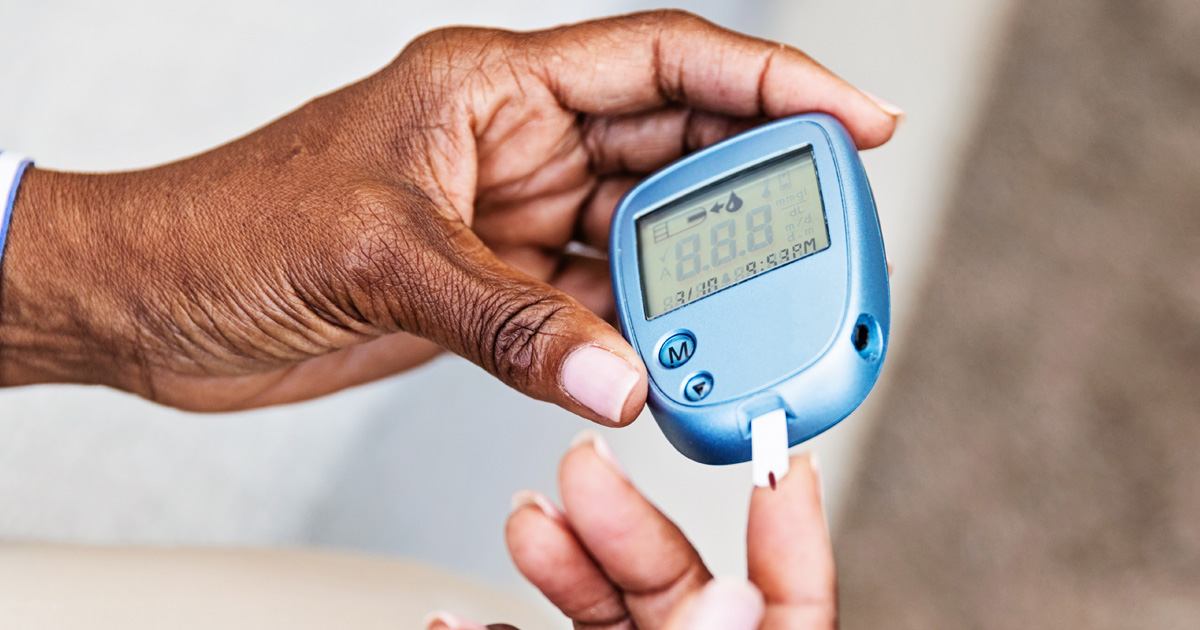The Grenada Food & Nutrition Council’s “GOOD FOOD IS WISE MEDICINE.” Preventing and living with Diabetes pt.1
Diabetes is a disease where the body is either producing no insulin, too little insulin or is unable to properly use the insulin produced.
Foods containing carbohydrates, like rice, provisions, fruits, milk, sweets and to a lesser extent vegetables, are broken down by the body to glucose. INSULIN is a hormone that helps your body use glucose for energy. When the body is unable to use glucose, blood sugar increases.
Type 1 diabetes occurs usually before age 40 and has a genetic link which causes the body’s immune system to turn on itself destroying insulin producing cells. People with Type 1 diabetes will require insulin therapy.
In Type 2 Diabetes, the body produces insulin but is unable to properly use it and usually occurs over age 40; however, younger people are increasingly being affected as factors such as overweight, obesity and inactivity are on the rise. Other risk factors: having family members who have diabetes, age 45 or older, women who develop diabetes during pregnancy (Gestational Diabetes), women who have babies weighing over 9lbs at birth and persons who were less than 5 pounds, 8 ounces at birth (Low Birth Weight). Type 2 diabetes is treated with oral medications (pills) or injections, including insulin.
Pre- diabetes – risk of developing diabetes is increased. This means your blood sugar is higher than normal but not high enough for a diagnosis of diabetes. You can delay or prevent diabetes by making life style changes.
WARNING SIGNS OF DIABETES: Feeling more thirsty or hungry than usual, frequent urination, unplanned weight loss, feeling tired, sight (vision) blurred, slow healing of cuts/ sores, mild high blood pressure (near 140/90), frequent infections (skin, urinary tract or vaginal).
 Keeping healthy, preventing diabetes or controlling blood sugar will be influenced by what and how much you eat. Knowing which foods affect your blood sugar and portioning your food to allow some measure of balance is important.
Keeping healthy, preventing diabetes or controlling blood sugar will be influenced by what and how much you eat. Knowing which foods affect your blood sugar and portioning your food to allow some measure of balance is important.
Foods which will affect blood sugar are mainly carbohydrate containing foods.
Carbohydrate is either simple or complex. Itis the main source of energy for the body and the preferred energy source for the brain and nervous system.
Simple Carbohydrates are made up of one or two sugars; usually provide a lot of energy or calories, have little or no vitamins and minerals and are processed very quickly by the body. These foods have faster effect on blood sugar, will make you feel hungry faster and can cause you to eat more. Examples of simple carbohydrates are: Candy and soft drinks, Maltose in beer, honey and sugar. These should be limited.
Fructose (fruit sugar) and galactose (found in milk products) are also simple carbohydrates; however they provide valuable nutrients like: Vitamin C, Potassium and fiber from fruits and calcium, potassium, phosphorus and protein from milk, to name a few.
Complex Carbohydrates are starches made up of3 or more sugars, such as: Rice, root vegetable (or provision), dry beans and peas, bread, macaroni, fruits and vegetables. These provide lower calories, higher in fiber, are processed more slowly by the body, keep you feeling full longer and may decrease your total food intake.
 White rice and white flour are processed or refined and will lack some of the natural nutrients like B Vitamins and will have less fiber.
White rice and white flour are processed or refined and will lack some of the natural nutrients like B Vitamins and will have less fiber.
To get more Complex Carbohydrates in your diet, use more: whole fruit, vegetables, whole grains like brown rice, dried beans, peas and lentils, root vegetables. These foods will allow you to get more fiber in your diet. Generally, most adults need about 25-30 grams of fiber daily and children 14 to 28 grams depending on their age and energy needs. Keep in mind that whether you’re having complex or simple carbohydrate, portion control is important. It is recommended that these foods should make up about 40-45% of your daily intake; some people have better blood sugar control on even less than 40%. It is best to include more complex and limit simple carbohydrates in your diet.
Remember that eatinghealthy foods in excess can be just as bad. For example, eating 6 slices ofwhole wheat bread at one meal can raise your blood sugar more than desired.

